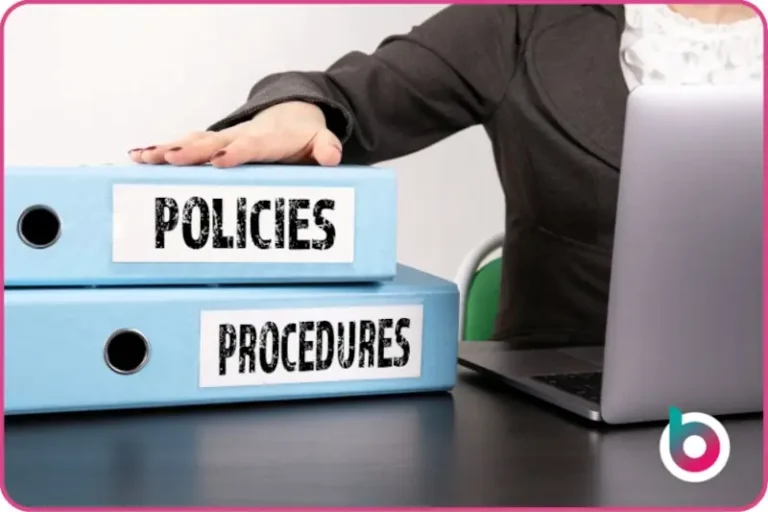40% of all Prevent referrals involve children as the cause of concern. Youth radicalisation is on the rise. As early years providers, your nursery plays an important part in the Prevent duty national strategy.
In this article, we share all you’ll need to know about Prevent duty in early years, your responsibilities, the radicalisation risks EYFS settings face and the policies you’ll need to safeguard your nursery children from radical views and behaviours.
Prevent duty terminology
Prevent duty is an essential part of your safeguarding processes. You’ll actively work to reduce the risks of radicalisation through your nursery ethos, curriculum, and recruitment process. However, it is key to understand the key terminology when we talk about Prevent duty.
These definitions are from the latest version of Keeping Children Safe in Education (KCSIE). Schools and maintained nurseries adhere to the guidance in KCSIE as a statutory requirement. Private nurseries are recommended to be aware of the document, although not a statutory requirement. EYFS settings are governed by the EYFS Framework and the Prevent duty guidance (for England and Wales).

What is extremism?
Extremism is when an individual or group vocally or actively opposes the five fundamental British values (democracy, the rule of law, individual liberty, mutual respect, and tolerance of different faiths and beliefs). It is also deemed extremist behaviour to call for the death of those who serve in the UK armed forces.
What does radicalisation mean?
Radicalisation is the process whereby a person comes to support or use terrorist violence. The process of radicalised behaviour is what Prevent duty aims to identify, prevent and rehabilitate.
Terrorism definition
The term terrorism describes the actions that endanger life or cause serious violence to one or more people, damage to property or interfere with or disrupt electronic systems. Terrorism is a threat used to influence the government or intimidate the public. It has a political, religious or ideological underpinning and aims to advance awareness or change for a ‘cause’.
What is Prevent duty in early years?
The Prevent duty is part of the UK government’s counter-terrorism strategy, CONTEST, and was introduced under the Counter-Terrorism and Security Act 2015.
Prevent duty is a responsibility tasked to those who are public-facing in their roles, like nursery practitioners, teachers, health care and social workers, and police. The aim of Prevent duty is to prevent people from being drawn into terrorism.

Prevent duty responsibilities for nurseries
To be clear, tackling views and behaviours that threaten fundamental British Values head-on is not your responsibility.
Nursery staff are not police officers, nor are they expected to be. Your practitioners are not there to interrogate families, investigate suspicions, or handle hostile situations.
Your role is not to manage risk in the same way as law enforcement, and no one should feel pressure to take that on. Instead, your job is to be alert, document observations, and raise concerns through the correct internal channels (to your setting’s Designated Safeguarding Lead – DSL).
Let’s look at the Prevent duty responsibilities for you and your nursery team

Early identification
You and your nursery team are in a unique position to notice when something just doesn’t sit right.
This could be subtle changes in a child’s language, behaviour, or play theme. Things like expressing intolerant views, becoming withdrawn, or suddenly mimicking adult phrases that seem out of context.
Practitioners aren’t expected to make diagnoses or jump to conclusions, but they should be aware that even young children can start to internalise harmful ideologies, often influenced by what they hear at home or online.

Early identification is about having your radar switched on and knowing your children well enough to spot those early signs.
Monitoring and reporting concerns
Every nursery should have a clear, well-organised system in place for documenting and escalating concerns. Whether it’s a one-off incident or a pattern you’re starting to see, it should be easy for staff to log information and flag it up to the DSL.
Your nursery leaders must ensure this system is not only fit for purpose but also actively used. Practitioners should know that no concern is too small – sometimes, the smallest things lead to the biggest breakthroughs.

Prevent duty training in early years
Prevent duty training is essential for every single practitioner working in early years. And it’s not a one-time box to tick, either.
Training should be completed during induction and then refreshed at least once a year to ensure everyone is up to speed with current guidance and threats.
This is typically arranged and overseen by the nursery’s DSL, who might also run refresher workshops, lead discussions at staff meetings, or bring in external trainers for a new perspective.

Everyone on the team should know what radicalisation might look like and exactly what to do if they spot the signs.
Safer recruitment
Safer recruitment is another key part of your Prevent duty responsibilities. That means robust recruitment policies that include enhanced DBS checks for every person working in the setting, from apprentices to volunteers to senior leadership.
It’s about genuinely safeguarding the environment you’re creating for children. Interviews should include safeguarding-related questions, and employment gaps on applications should always be explored.

Whistleblowing and staff voice
Even the best teams can face difficult situations, and it’s so important that staff know how to speak up.
A strong whistleblowing policy should be in place so everyone knows what to do if they’re concerned about a colleague’s behaviour, including that of the nursery manager.
This needs to be more than a document in a filing cabinet. It should be a living, breathing part of your positive working culture. Staff should feel confident that their concerns will be taken seriously, handled confidentially, and not lead to retaliation.
The Prevent referral route
Your DSL team should also be crystal clear on how a Prevent referral actually works.
While the police do handle these referrals, anyone – including members of the public – can make one.
That’s why it’s so important for the whole nursery team to understand the basics of the process. It can feel daunting, but the referral process exists to support and protect, not punish.
DSLs should also foster strong links with their local Prevent teams and safeguarding partners so they’re never navigating things alone.

Broad and balanced EYFS curriculum
A truly effective curriculum should be broad, balanced, and deeply rooted in the five British values: democracy, rule of law, individual liberty, mutual respect, and tolerance for those of different faiths and beliefs.
These aren’t just buzzwords – they’re the building blocks of a compassionate, inclusive nursery and society.
Activities should reflect the cultural and social makeup of your community, giving children the cultural capital they need to thrive in modern Britain. From PSED activities and ‘Understanding the World’ games, you’re helping to build a resilient, respectful generation from the ground up.

Radicalisation risks for nurseries
Radicalisation in children
You might not immediately think of radicalisation when looking at a group of three- and four-year-olds playing with building blocks – but the truth is, children are increasingly exposed to harmful ideologies at a much younger age.
Whether it’s through overheard conversations at home, unfiltered access to online content, or casual comments picked up in the community, children can begin to mimic language or ideas they don’t fully understand. This could be something as subtle as repeating negative stereotypes or as noticeable as showing intolerance during play.
The key risk here is that these early behaviours might go unchallenged, becoming normalised in the child’s worldview.

In nurseries, practitioners need to be especially alert to the influence of external messages and be ready to challenge them gently and appropriately while supporting children’s personal, social, and emotional development.
The risk of nursery staff
It’s an uncomfortable thought, but we must also consider that radicalisation risks can come from within the team.
Staff members, like anyone else, can hold personal beliefs that conflict with the values of the setting – or worse, they may attempt to influence others. This might show up in the form of subtle comments, biases in how children are treated or disciplined, or resistance to promoting inclusivity and British values.
The danger is heightened if there isn’t a strong safeguarding culture in place, where concerns about colleagues are brushed under the rug instead of being taken seriously.
That’s why safer recruitment, ongoing training, and a transparent whistleblowing process are so critical. Everyone working in a nursery has a duty to uphold the setting’s ethos and protect children from any form of extremist influence.
Radicalisation risks from parents and the community
Your nursery sits right at the heart of your community – which is both a strength and a challenge.
The beliefs and behaviours of parents and extended family members have a huge influence on the children in your care. While the majority of families are loving, supportive, and engaged, some may hold or express extreme views that children are exposed to at home.
Community risks can also emerge through external groups, local tensions, or online forums that circulate within your nursery’s catchment. These factors are often hidden, which is why nursery managers need to stay engaged with local safeguarding partnerships and community networks.
Building strong, respectful nursery and home relationships is essential so concerns can be raised and explored without creating fear or alienation.
EYFS policies to prevent radicalisation
Robust EYFS policies help to prevent radicalisation in the early years. They’re the foundation of a safe, responsive, and inclusive nursery environment.
These documents should be living, breathing tools that evolve with your setting’s needs, helping to protect children, staff, and the wider community as new risks emerge.
Here are some of the key EYFS policies to revisit with an evaluative eye, considering your Prevent duty.

Safeguarding policy
Your nursery’s backbone for identifying, responding to, and escalating concerns, including signs of radicalisation – every practitioner should know it inside out.
Parent engagement policy
By fostering open, respectful communication with families, you can better understand the influences children are exposed to and offer early intervention where needed.
Online safety policy
With children and families increasingly connected to the digital world, this policy helps prevent exposure to extremist content, both at nursery and at home. It will likely cross over with your staff conduct policy, too.
Staff conduct policy
This outlines the professional expectations for every team member, ensuring no extremist views or behaviours are allowed to influence practice or relationships.
Behaviour policies
Positive behaviour management strategies that support the consistent teaching of respect, tolerance, and kindness – values that directly counter the divisive narratives behind radicalisation.
Induction and safer recruitment processes
Although not policies per se, these ensure that anyone joining your team has been thoroughly vetted and understands their Prevent duty responsibilities from day one.
In today’s ever-evolving world, understanding and implementing the Prevent duty in early years settings has never been more important. From recognising early signs of radicalisation to embedding British values in the EYFS curriculum, nursery managers and practitioners play a vital role in safeguarding the next generation.
If you’ve found this article helpful, why not stay one step ahead?
Sign up for our blog and newsletter to get more practical insights, expert tips, and safeguarding updates delivered straight to your inbox – because when it comes to children’s safety, knowledge really is power.